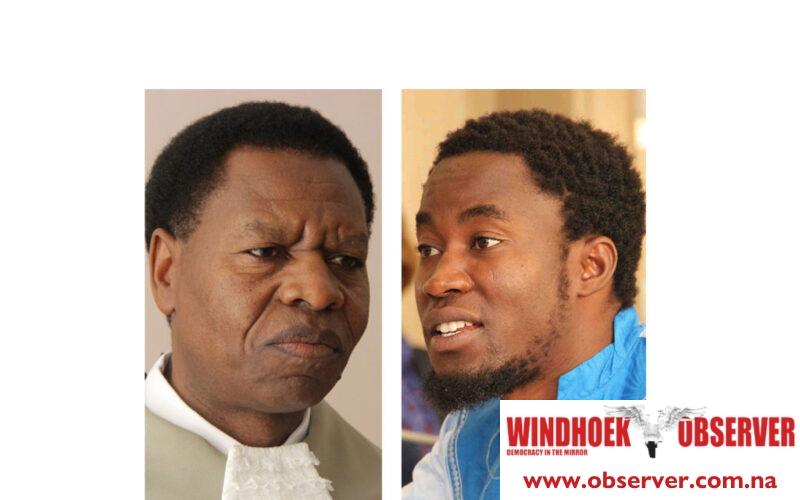Stefanus Nashama
Job Amupanda, the leader of the Affirmative Repositioning Movement (AR), has expressed the movement’s support for the decision to subject judges to public interviews during the recruitment process, emphasizing the importance of transparency.
Amupanda stated that the AR movement has long advocated for transparency in the recruitment of judges, a practice already in place in neighbouring countries.
This development comes in the wake of Chief Justice Peter Shivute’s recent amendment to the Judicial Service Commission Regulations, which now allows for public interviews of judges.
According to Shivute, “The Commission may, if it deems it necessary, call any person nominated in terms of sub-regulation (3) or identified in terms of sub-regulation (5) for an oral interview, which must be conducted in public.”
Amupanda highlighted that this decision was a result of AR’s actions in 2020 when the movement protested at the Supreme Court, urging that judges in Namibia should undergo public interviews before their appointments.
“The AR Movement marched to the Supreme Court and petitioned the Chief Justice, asking for interviews of judges, the Prosecutor General, and the Ombudsman to be held in public. However, following misunderstandings, we had to divert the protest,” he explained.
While recalling the 2020 protest, Amupanda took the opportunity to publicly apologize to Chief Justice Shivute for the march to his residence in an attempt to deliver their petition. He clarified that their actions were driven by revolutionary necessity.
“On behalf of the AR movement, I would like to publicly apologize to the Chief Justice that we had to camp in his street following disagreements. It was out of revolutionary necessity,” said Amupanda.
Commenting on this development, Lawyer Kadhila Amoomo asserted that all individuals aspiring to become judges in Namibia should undergo public oral interviews. He described this as a historic development in the Namibian Judiciary System, emphasizing that it enhances transparency in the appointment of judges.
Amoomo also acknowledged the AR movement’s longstanding advocacy for public interviews and noted the responsiveness of the judicial system to this important call.
“AR movement has been at the forefront of this call for years, finally, a piece of positive news has reached the public,” he said.




